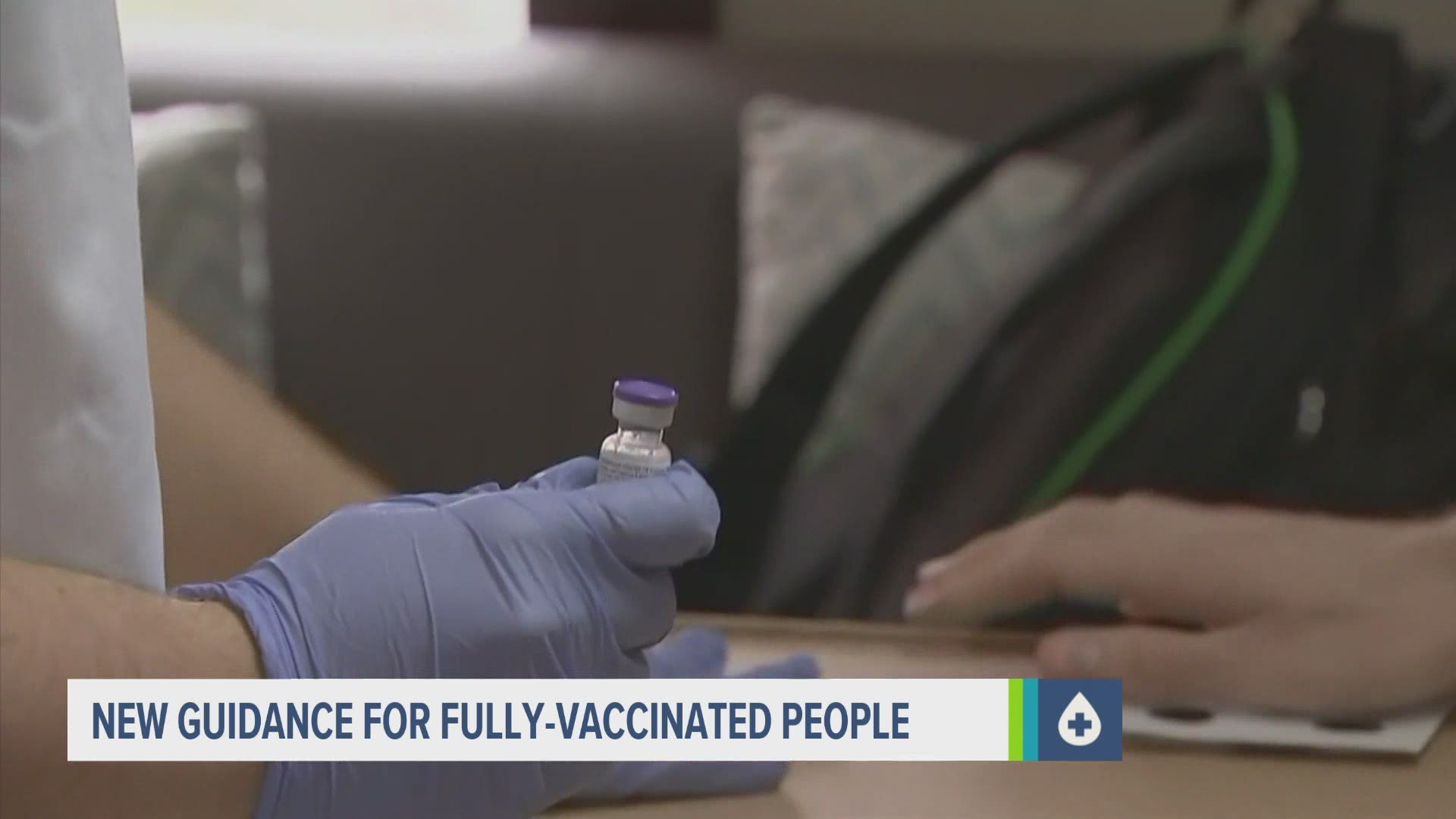WEST DES MOINES, Iowa — Ramona Wink said her appointment books filled rapidly throughout the COVID-19 pandemic.
"The past year has been an explosion of mental health situations," said Wink, a licensed mental health counselor at 515 Therapy & Consulting in West Des Moines. "People realized they need help and support during this very difficult time."
Among many of the stressors that contributed to this past year's rise in depression was the sense of isolation experienced by Americans who were forced to social distance and stay away from their loved ones, places of worship, and community activities.
Monday, when the CDC announced new guidance for fully-vaccinated people that allows people to resume certain social interactions, Wink said she saw a light at the end of the tunnel.
"What the CDC did [Monday] certainly gives people hope, and hope is a priceless commodity," Wink said.
The CDC said that fully-vaccinated people can visit other fully-vaccinated people indoors, without wearing masks or social distancing. In addition, fully-vaccinated people can also visit one non-vaccinated household, as long as everyone is at low-risk for COVID-19.
The caveat to that is the person should be fully-vaccinated for two weeks prior to gathering with others to assure safety.
That means many grandparents, including Wink, are able to give their grandchildren a big hug they've been waiting for too long to give.
"I just got to see my two-year-old grandson because I've been fully-vaccinated, and I hadn't hugged him in a long time, and that felt really great," said Wink. "There's nothing like just holding them in your arms and giving them that big squeeze, and it was great for him and it was great for my mental health as well."
Wink said she is also optimistic for both state and federal legislation that would continue covering telehealth for services for patients seeking mental health therapy.
"We [therapists] feel very strongly that telehealth needs to stay and providers would be paid for telehealth as we would a normal office visit because we are doing the same work," said Wink. "We have proven that proven that telehealth works, and we have made the very best out of a very bad situation."

